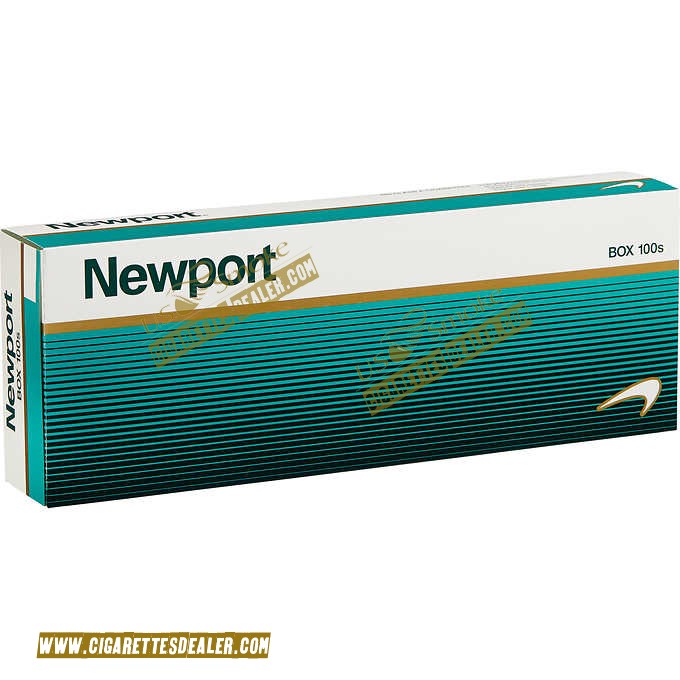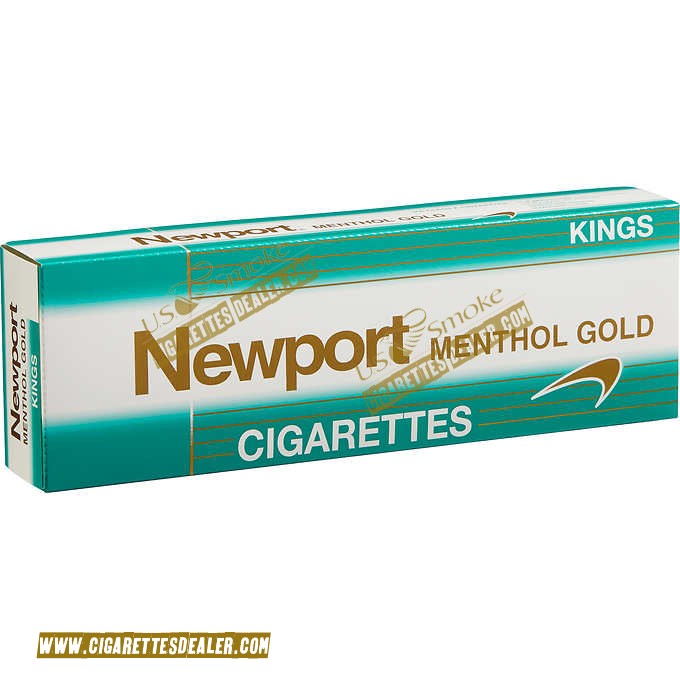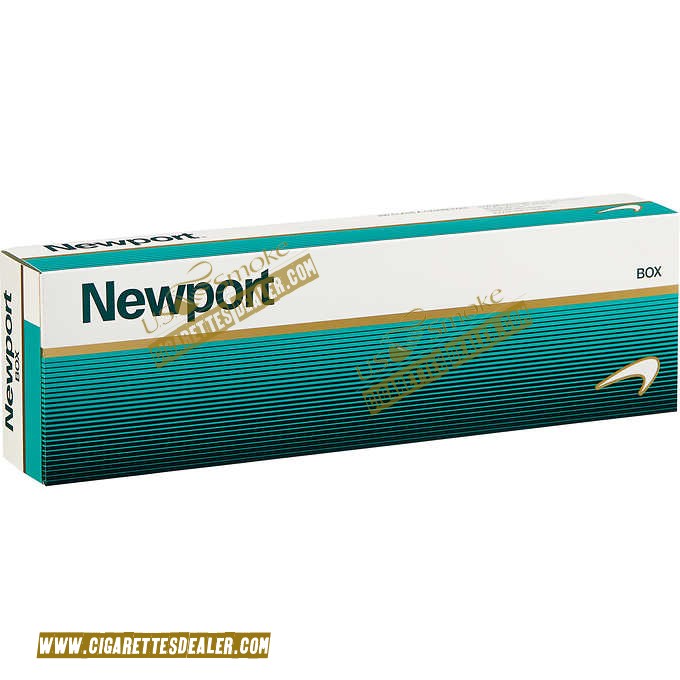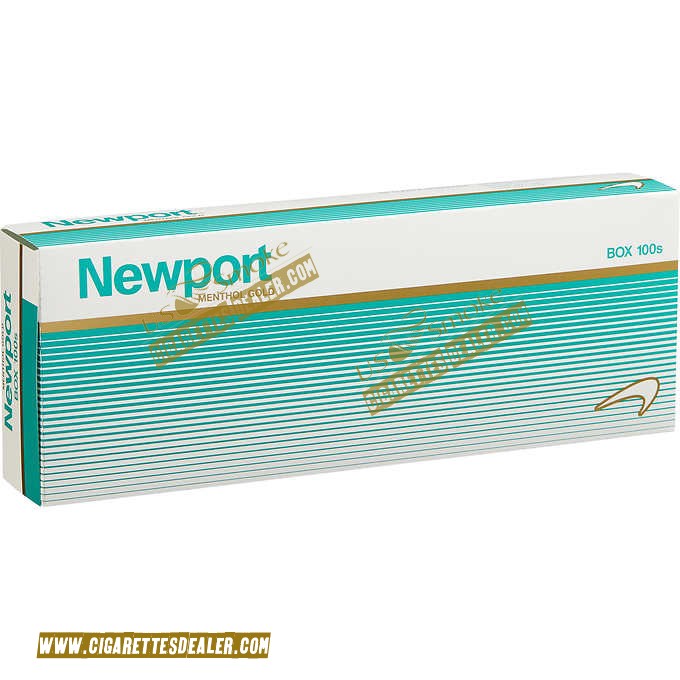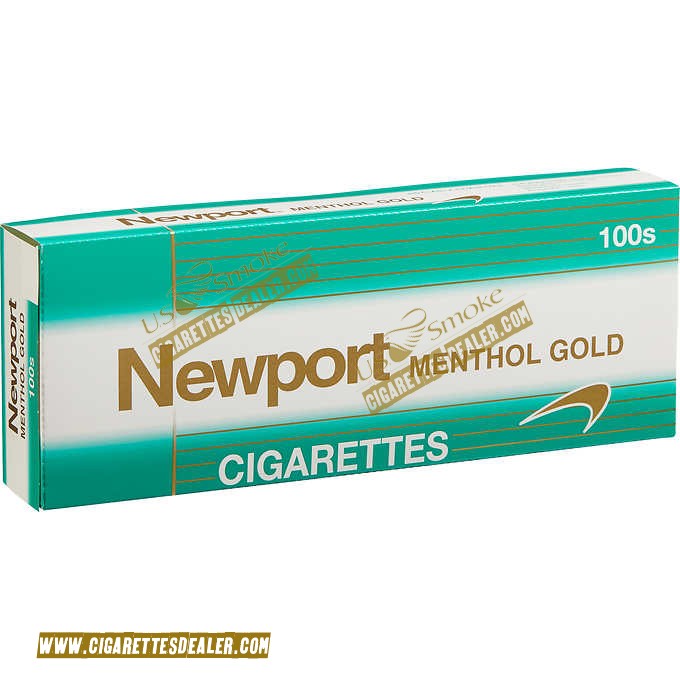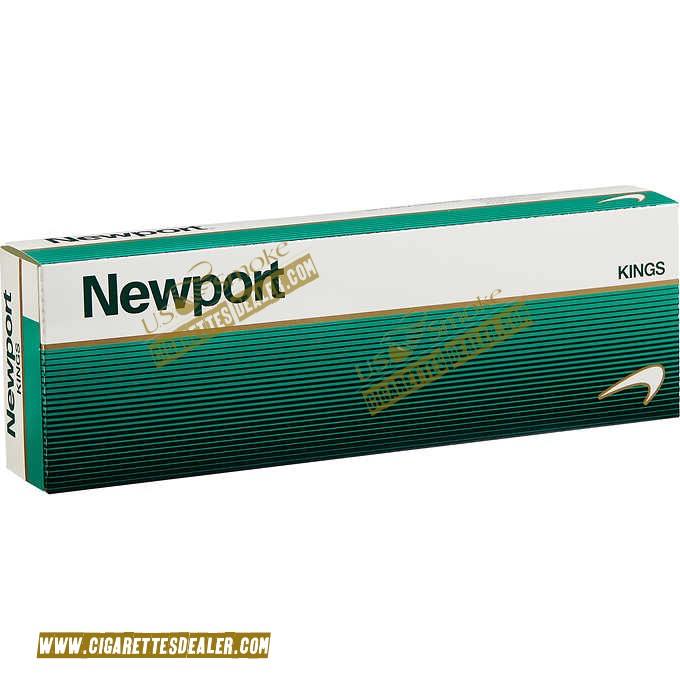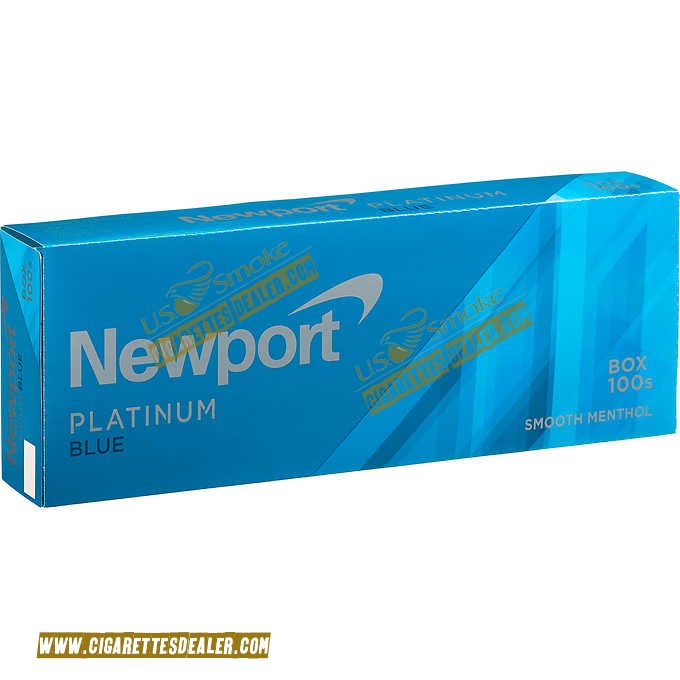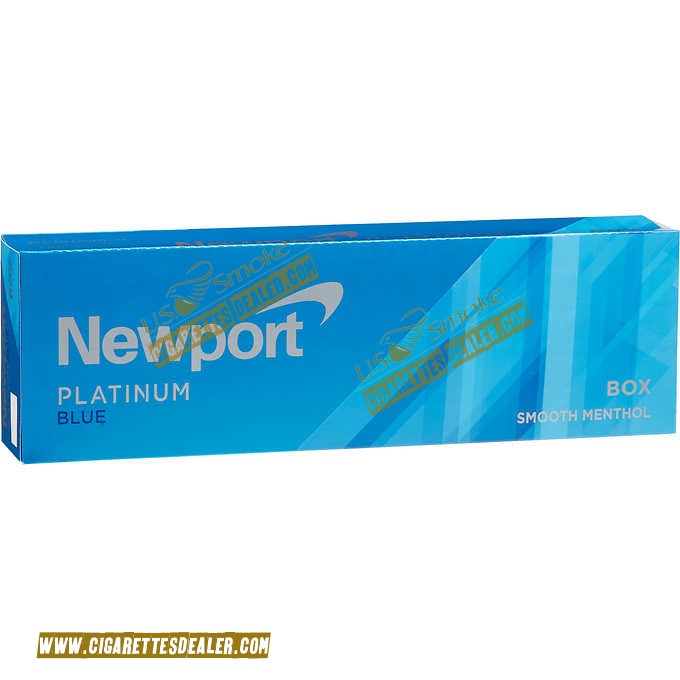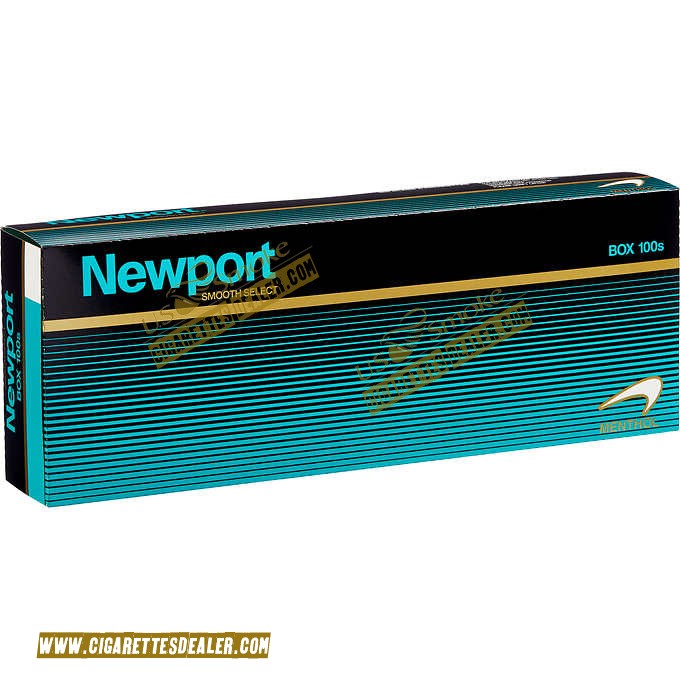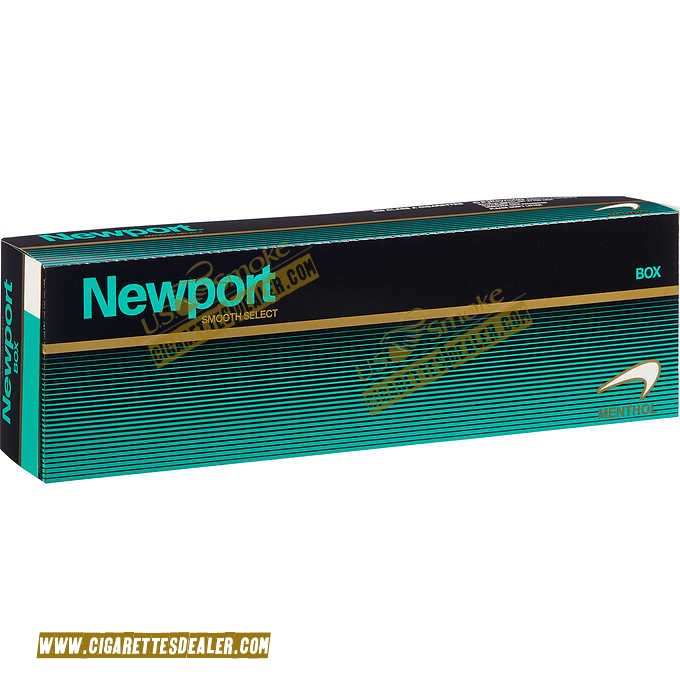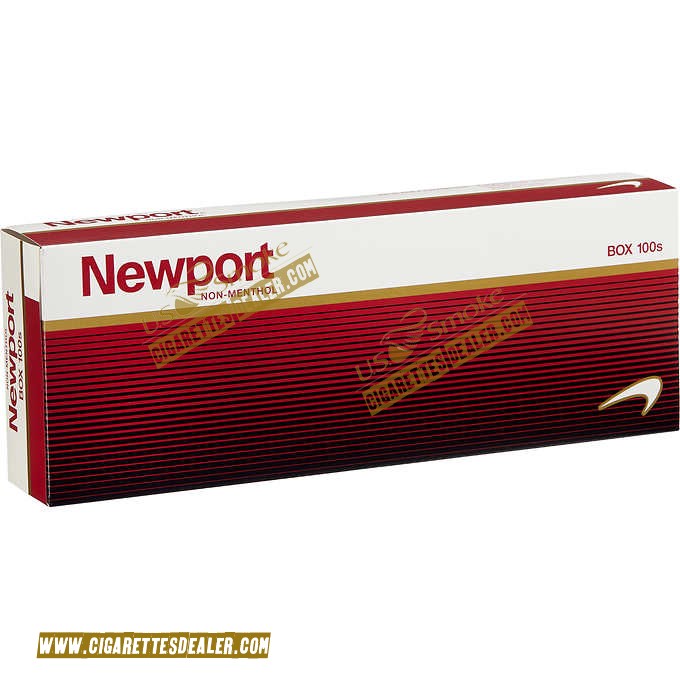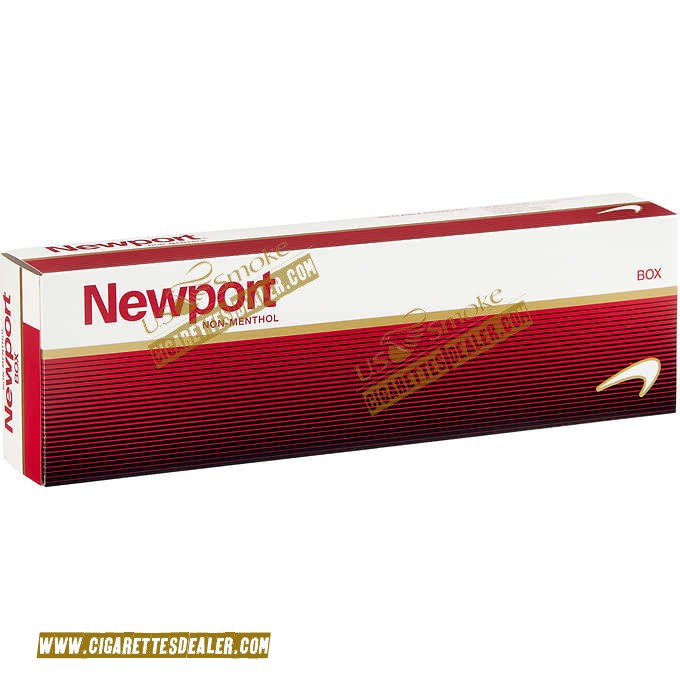LaTrisha Vetaw has watched generations of her family suffer after getting hooked on menthol cigarettes. Her father died of a heart attack at 46, with a pack of cigarettes in his pocket alongside a doctor’s note urging him to quit smoking. Her 45-year-old half sister, who has a cough she can’t shake and loses her breath climbing the stairs, smokes Newports. So do her niece and nephew in their 20s.
So while Vetaw supports President Trump’s recent vow to ban almost all flavored e-cigarettes to stop kids from getting hooked on nicotine, she’s exasperated he isn’t going after menthol cigarettes — the only flavored cigarettes still on the market and a decades-old scourge of African American communities that even the government says are more addictive than unflavored ones.
“When you look at the staggering numbers of African Americans smoking menthol, it’s so hurtful that no one is taking a stand,” said Vetaw, health policy and advocacy manager at NorthPoint Health and Wellness Center in Minneapolis.
AD
Trump’s unexpected assault on flavored e-cigarettes has resurrected a complicated, years-old debate over tobacco regulation, racial equity and health. Is the government wrongly ignoring another flavored nicotine product that poses particular dangers to African Americans? Or would it be discriminatory to ban a flavor so popular among blacks?
Some black leaders say a ban on menthol cigarettes would be paternalistic, robbing African American smokers of their right to choose which products to use. Others, including many black health advocates, counter that it’s racist not to ban a dangerous product pushed for years by what they call predatory, racially targeted marketing.
For decades, the tobacco industry peddled menthol cigarettes to black consumers through billboards, TV ads and magazines like Jet and Ebony, with African Americans smoking under slogans such as, “Alive with pleasure!” Tobacco companies also bought good will by sponsoring high-profile athletic and cultural events and contributing to black politicians and organizations, including members of the Congressional Black Caucus and the group’s foundation — contributions that critics say made black lawmakers more likely to support industry positions.
Menthol cigarettes are still popular among African Americans, 47,000 of whom die every year of smoking-related causes. But unlike the alarm over underage use of e-cigarettes — fueled in large part by the popularity of Juul among white, middle-class teenagers — neither the Trump administration nor the Obama administration have treated the devastating health effects of menthol cigarettes on the black community as a crisis.
When a health threat arises for “young white people, then action is taken really quickly,” said LaTroya Hester, a spokeswoman for the National African American Tobacco Prevention Network, based in Durham, N.C. “When it’s African Americans, it just seems that people are slow to move.”
Almost a year ago, then-Food and Drug Administration Commissioner Scott Gottlieb pledged to issue a formal proposal banning menthol cigarettes, saying they “disproportionately and adversely affect underserved communities.” But with Gottlieb’s departure last spring, the administration appears unlikely to follow through anytime soon, given vociferous opposition by industry and tobacco-state lawmakers, say knowledgeable individuals inside and outside the government.
Asked the status of FDA efforts, agency spokeswoman Stephanie Caccomo said, “We continue to review all of the evidence related to flavored tobacco products, including menthol.”
In 2009, Congress passed a landmark law giving the FDA authority to regulate tobacco products. The law banned sweet, candy-flavored cigarettes that had proliferated to appeal to youth. But because Congress exempted menthol cigarettes from that ban, trying to remove them from the market today would be a challenge. By contrast, e-cigarettes, which have never been authorized by the FDA, are easier to yank.
The e-cigarette plan outlined by administration officials in September would ban sales of almost all flavored vapes until they get the FDA’s authorization. While top Trump health officials said in September they planned to exempt only tobacco-flavored vapes, the White House is now expected to exclude menthol and tobacco flavors in an announcement that could come as early as this week, said one person familiar with the discussions. The president’s campaign manager Brad Parscale had warned him the plan could backfire for his reelection campaign based on internal polling. Another concern is that people smoking menthol cigarettes might want to use menthol-flavored vapes to help them quit. But many public health advocates oppose allowing any flavored vapes on the market.
A ban on flavored e-cigarettes would disproportionately affect white high schoolers because they are most likely to vape. Almost 27 percent of white teens said they were current e-cigarette users in 2018, compared to 7.5 percent of African American students, according to data from the Centers for Disease Control and Prevention.
Black students, by a small margin, prefer flavored cigars to e-cigarettes, the CDC says. The cigars, which come in versions that taste like candy and fruit, are marketed heavily in urban areas. Gottlieb moved to ban some flavored cigars as FDA commissioner, but it’s not clear if the administration will follow through.
Menthol cigarettes have been on advocates’ hit lists for years, partly because research shows menthol’s cooling sensation makes it easier for kids of all races to start smoking. First used in cigarettes in the 1920s, menthol is a chemical compound extracted from peppermint or corn mint plants or created synthetically. It wasn’t used widely until the 1950s and 1960s.
Ads from 1970, left, and 1998. (Collection of Stanford Research Into the Impact of Tobacco Advertising)
Ads from 1970, left, and 1998. (Collection of Stanford Research Into the Impact of Tobacco Advertising)
But there’s a clear racial divide in smokers’ preferences. While just over half of all teen smokers use menthol cigarettes, 70 percent of young African American smokers do. Among adults, the racial gap is even wider: More than three-quarters of African American smokers use menthol cigarettes — three times the proportion of white smokers.
AD
And contrary to ads that once depicted menthol cigarettes as refreshing and “healthier” than other cigarettes, a growing body of research indicates menthol cigarettes are easier to start and harder to quit. African American and Latino smokers had an especially tough time stopping smoking menthol cigarettes, according to a 2009 study. That was backed up by a 2013 FDA report that found that menthol cigarettes “pose a public health risk above that of non-menthol cigarettes” because they are associated with greater addiction. Other studies show that African Americans are more likely to die of smoking-related diseases such as lung cancer, heart disease and stroke than are whites, although they smoke fewer cigarettes and start the habit at a later age. A 2014 study, meanwhile, suggested that menthol cigarettes might lead to more severe lung problems, resulting in more trips to the emergency room and more hospitalizations, compared to people smoking regular tobacco.
During the debate over the 2009 tobacco-control law, the Congressional Black Caucus was split on the contentious issue of whether to ban menthol cigarettes, with some members arguing it was unfair to outlaw African American smokers’ product of choice. Some lawmakers were also concerned about jeopardizing Philip Morris’ support for the bill. In the end, Congress exempted menthol and ordered the FDA to take a close look at the issue.
Today, an increasing number of African American lawmakers and activists are backing a menthol ban as well as other anti-tobacco measures. “We have seen a growing interest in members of the Black Caucus to tackle tobacco-related issues,” said Matthew Myers, president of the Campaign for Tobacco-Free Kids.
AD
After Gottlieb said last fall he wanted to ban menthol, he drew immediate support from the late representative Elijah E. Cummings (D-Md.), then-chairman of the caucus. Several caucus members have also signed onto a bill by House Energy and Commerce Chairman Frank Pallone Jr. (D-N.J.) to ban menthol cigarettes and other flavored tobacco products, including e-cigarettes.
The tobacco industry continues to contribute to caucus members, and industry officials serve on the caucus’s foundation corporate advisory board. But fewer caucus members are accepting industry money, said Myers.
Nevertheless, getting a menthol cigarette ban through a Republican-controlled Senate remains a steep challenge, health advocates say.
They point, for example, to the reaction of Sen. Richard Burr (R-N.C.), to Gottlieb’s talk about banning menthol cigarettes. Burr, whose state is home to R.J. Reynolds Tobacco Company, maker of best-selling Newports, denounced Gottlieb on the Senate floor in January, saying a menthol ban would rob adult smokers of a legal product and cost states billions in tax revenue. He also complained privately about Gottlieb to several administration officials. A Burr aide said the office typically does not comment on private conversations.
AD
The industry itself remains adamantly opposed to a ban, saying there’s no reason to regulate menthol cigarettes differently than other cigarettes. Reynolds American International, the parent company of R.J. Reynolds, cites studies finding menthol cigarettes no more addictive and contends the FDA’s assertions to the contrary reflect an “incomplete” review of the evidence. The company said in a statement that prohibiting menthol would also create “troubling unintended consequences,” including an illicit market.
Dismayed by the lack of federal action, some states and communities are using the vaping crisis to push through their own bans of flavored tobacco products — including menthol cigarettes and flavored cigars as well as e-cigarettes.
Los Angeles County recently approved such a ban. San Francisco’s Board of Supervisors did the same thing two years ago. Last year, voters upheld the measure, defeating a multimillion-dollar campaign by Reynolds and other businesses to overturn it at the ballot box. Those measures permanently ban the products — unlike the administration plan, which would bar products until they got FDA clearance.
AD
“We just kind of gave up on the FDA,” said Carol McGruder, who co-chairs the San Francisco-based African American Tobacco Control Leadership Council.
In New York City, a major battle looms over a bill that would prohibit the sale of flavored tobacco products, including menthol cigarettes, pitting African American groups and health organizations against Al Sharpton and a civil rights group he founded, National Action Network. Sharpton argues that banning menthol cigarettes would harm African Americans by increasing encounters with police. He points to the case of Eric Garner, who died in 2014 after a cop put him in a chokehold while arresting him for allegedly selling untaxed cigarettes. Recently, Garner’s mother also denounced the proposed ban.
Rev. Al Sharpton opposes a New York City bill that would ban flavored tobacco products, including menthol cigarettes, arguing it would harm African Americans by increasing conflicts with police. He cites the case of Eric Garner, who died after police put him in a chokehold while arresting him for allegedly selling untaxed cigarettes. (Patrick Semansky/AP)
Rev. Al Sharpton opposes a New York City bill that would ban flavored tobacco products, including menthol cigarettes, arguing it would harm African Americans by increasing conflicts with police. He cites the case of Eric Garner, who died after police put him in a chokehold while arresting him for allegedly selling untaxed cigarettes. (Patrick Semansky/AP)
“Can you tell me that police are not going to give tickets and make arrests?” Sharpton asked in an interview about the proposed New York City ban. Without such an assurance, he said, “I’ve got a concern.”
Critics dismiss Sharpton’s position that black men will face more targeting by police if menthol cigarettes are banned. “There’s no evidence to support it,” said Delmonte Jefferson, executive director of the National African American Tobacco Prevention Network, saying local bans target manufacturers and retailers, not buyers.
African American health advocates have long criticized Sharpton’s ties to the tobacco industry. A few years ago, with funding from Reynolds American, Sharpton traveled around the country discussing his concerns about menthol bans. “You don’t necessarily see a big ‘Alive with pleasure’ billboard anymore,” said Vetaw, the Minneapolis advocate. “But you see Al Sharpton show up and other black leaders, you know, who are in the pockets of Big Tobacco.”
Sharpton said his opinions reflect his personal convictions, not industry support. Given his involvement in the Garner case, he said, “it would be inconsistent for me not to take a position” on the New York City bill.
Reynolds American said in a statement it has “made contributions to various organizations who share our concern with the unintended social justice consequences of a proposed menthol ban.”
Smokers, too, have expressed fierce opposition to a menthol cigarette ban. NYC Citizens Lobbying Against Smoker Harassment wrote council members that black customers will be “outraged at being targeted” rather than thankful their favorite product is banned.
“Are you prepared to face that coming backlash?” the group warned.
But Makesha Vetaw, LaTrisha’s half sister, supports a sales ban. She started smoking when she was 18, and “before you know it,” she said, “addiction had kicked in.” Minneapolis’ restrictions on menthol cigarette sales to tobacco and liquor stores make it harder for her, but they haven’t forced her to quit.
“I used to be athletic,” she said. Now, “It’s like, ‘Ooh, I can’t breathe.’ ”
US Cigarettes Dealer
Tuesday, November 19, 2019
Monday, November 18, 2019
President Trump: Don’t fail America’s children on flavored e-cigarettes
Optimism among public health advocates regarding the Trump administration’s pending action on flavored e-cigarettes, which have put millions of our kids at risk of nicotine addiction and worse, has turned to alarm.
President Donald Trump and first lady Melania Trump echoed the concerns of millions of parents in September when they first addressed the skyrocketing rise of e-cigarette use among youths. At the time, Health and Human Services Secretary Alex Azar said the administration intends to “clear the market” of all flavored e-cigarettes to address the skyrocketing rates of e-cigarette use by youths and adolescents.
Since then, administration officials have made several statements that raise questions about how far the policy will go. The media have reported that the policy may leave menthol-flavored e-cigarettes on the market and continue to allow vape shops to sell potentially any type of flavored product. Last week, the president tweeted about meeting with the e-cigarette industry to devise an “acceptable solution” to the vaping “dilemma.”
I am writing on behalf of six organizations that have been working for decades to prevent kids from using tobacco: the American Heart Association, American Academy of Pediatrics, Truth Initiative, Campaign for Tobacco-Free Kids, American Cancer Society/American Cancer Society Cancer Action Network, and American Lung Association. We commend the president and the first lady for bringing needed attention to a crisis that threatens to addict a new generation to nicotine. But we are deeply troubled by signals that the administration will fall well short of taking the bold action necessary to end this nationwide epidemic.
Related: In a breakthrough, health officials identify possible culprit behind vaping illnesses: vitamin E acetate
The administration must include all flavors — including menthol — and all places where e-cigarettes are sold — including brick-and-mortar and online retail outlets — for the policy to have its desired impact.
Allowing the e-cigarette industry to continue targeting America’s children would be a historic mistake. There is no public health justification to allow any flavor to be exempt from a policy to remove flavored e-cigarettes from the market. In fact, evidence is clear that youths will turn to any e-cigarette flavor that is left. The 2019 National Youth Tobacco Survey shows that youth use of mint and menthol e-cigarettes soared between 2018 and 2019, following Juul’s move to restrict the availability of flavors except mint and menthol in stores. Decades of experience have demonstrated that menthol appeals to kids — in fact, more than half of current youth smokers use menthol cigarettes.
Exempting vape shops also would raise major concerns. A study published earlier this year in JAMA Pediatrics showed that tobacco and vape shops in California had a significantly poorer record of checking IDs and preventing underage sales compared to other retailers. The Food and Drug Administration itself has acknowledged that more youth e-cigarette users report obtaining e-cigarettes from vape shops than from gas stations or convenience stores. If vape shops are permitted to continue selling flavored e-cigarettes, evidence shows kids will continue purchasing them.
Decisive action is needed as more than 1 in 4 high school students report using e-cigarettes, and e-cigarette use among 8th, 10th, and 12th graders has more than doubled in the past two years. This is a direct result of the tobacco industry’s reprehensible targeting of kids with million-dollar marketing campaigns using social media and other youth-oriented platforms. The industry, which spent decades successfully hooking millions of kids onto combustible tobacco products, has resorted to the same playbook in luring many of today’s youth to e-cigarettes.
Flavors are central to the industry’s strategy. With more than 15,000 flavors currently available — from mango and mint to cotton candy and gummy bear — it’s little wonder that 97% of current youth e-cigarette users report using a flavored product. If flavors are the bait that attracts kids to e-cigarettes, nicotine is the hook. Some of the most popular e-cigarettes contain extraordinarily high levels of nicotine — as much a pack of cigarettes. As a result, some school administrators are hiring addiction counselors to contend with skyrocketing rates of nicotine use.
Related: ‘I really love the feeling’: As vaping injuries climb, doctors struggle to wean youth off nicotine
Despite the health risks posed by e-cigarettes, industry leader Juul marketed its products to high school students as “totally safe,” according to students’ testimony before the House Oversight and Reform Committee in July. This was disturbing news to concerned parents, many of whom have been shocked to find that what they thought was their child’s pen, flash drive, or eyeliner was actually an e-cigarette.
The stark reality is that e-cigarette companies such as Juul, which is partially owned by the manufacturer of Marlboro cigarettes and is now led by a former Altria executive, have done real harm to a generation of children. It’s no surprise the industry has been working to defeat the administration’s effort to restrict flavors or weaken it with unproven exemptions.
We call on the Trump administration to dismiss the industry’s misinformation and instead stand with an overwhelming majority of the public that supports protecting kids from a patently addictive and harmful product. That means removing all flavored e-cigarettes, including mint and menthol, from the market.
*Nancy Brown is the CEO of the American Heart Association. Mark Del Monte is the CEO of the American Academy of Pediatrics. Robin Koval is the CEO of the Truth Initiative. Matthew Myers is president of the Campaign for Tobacco-Free Kids. Gary Reedy is the CEO of the American Cancer Society/American Cancer Society Cancer Action Network. Harold Wimmer is the CEO of the American Lung Association.
President Donald Trump and first lady Melania Trump echoed the concerns of millions of parents in September when they first addressed the skyrocketing rise of e-cigarette use among youths. At the time, Health and Human Services Secretary Alex Azar said the administration intends to “clear the market” of all flavored e-cigarettes to address the skyrocketing rates of e-cigarette use by youths and adolescents.
Since then, administration officials have made several statements that raise questions about how far the policy will go. The media have reported that the policy may leave menthol-flavored e-cigarettes on the market and continue to allow vape shops to sell potentially any type of flavored product. Last week, the president tweeted about meeting with the e-cigarette industry to devise an “acceptable solution” to the vaping “dilemma.”
I am writing on behalf of six organizations that have been working for decades to prevent kids from using tobacco: the American Heart Association, American Academy of Pediatrics, Truth Initiative, Campaign for Tobacco-Free Kids, American Cancer Society/American Cancer Society Cancer Action Network, and American Lung Association. We commend the president and the first lady for bringing needed attention to a crisis that threatens to addict a new generation to nicotine. But we are deeply troubled by signals that the administration will fall well short of taking the bold action necessary to end this nationwide epidemic.
Related: In a breakthrough, health officials identify possible culprit behind vaping illnesses: vitamin E acetate
The administration must include all flavors — including menthol — and all places where e-cigarettes are sold — including brick-and-mortar and online retail outlets — for the policy to have its desired impact.
Allowing the e-cigarette industry to continue targeting America’s children would be a historic mistake. There is no public health justification to allow any flavor to be exempt from a policy to remove flavored e-cigarettes from the market. In fact, evidence is clear that youths will turn to any e-cigarette flavor that is left. The 2019 National Youth Tobacco Survey shows that youth use of mint and menthol e-cigarettes soared between 2018 and 2019, following Juul’s move to restrict the availability of flavors except mint and menthol in stores. Decades of experience have demonstrated that menthol appeals to kids — in fact, more than half of current youth smokers use menthol cigarettes.
Exempting vape shops also would raise major concerns. A study published earlier this year in JAMA Pediatrics showed that tobacco and vape shops in California had a significantly poorer record of checking IDs and preventing underage sales compared to other retailers. The Food and Drug Administration itself has acknowledged that more youth e-cigarette users report obtaining e-cigarettes from vape shops than from gas stations or convenience stores. If vape shops are permitted to continue selling flavored e-cigarettes, evidence shows kids will continue purchasing them.
Decisive action is needed as more than 1 in 4 high school students report using e-cigarettes, and e-cigarette use among 8th, 10th, and 12th graders has more than doubled in the past two years. This is a direct result of the tobacco industry’s reprehensible targeting of kids with million-dollar marketing campaigns using social media and other youth-oriented platforms. The industry, which spent decades successfully hooking millions of kids onto combustible tobacco products, has resorted to the same playbook in luring many of today’s youth to e-cigarettes.
Flavors are central to the industry’s strategy. With more than 15,000 flavors currently available — from mango and mint to cotton candy and gummy bear — it’s little wonder that 97% of current youth e-cigarette users report using a flavored product. If flavors are the bait that attracts kids to e-cigarettes, nicotine is the hook. Some of the most popular e-cigarettes contain extraordinarily high levels of nicotine — as much a pack of cigarettes. As a result, some school administrators are hiring addiction counselors to contend with skyrocketing rates of nicotine use.
Related: ‘I really love the feeling’: As vaping injuries climb, doctors struggle to wean youth off nicotine
Despite the health risks posed by e-cigarettes, industry leader Juul marketed its products to high school students as “totally safe,” according to students’ testimony before the House Oversight and Reform Committee in July. This was disturbing news to concerned parents, many of whom have been shocked to find that what they thought was their child’s pen, flash drive, or eyeliner was actually an e-cigarette.
The stark reality is that e-cigarette companies such as Juul, which is partially owned by the manufacturer of Marlboro cigarettes and is now led by a former Altria executive, have done real harm to a generation of children. It’s no surprise the industry has been working to defeat the administration’s effort to restrict flavors or weaken it with unproven exemptions.
We call on the Trump administration to dismiss the industry’s misinformation and instead stand with an overwhelming majority of the public that supports protecting kids from a patently addictive and harmful product. That means removing all flavored e-cigarettes, including mint and menthol, from the market.
*Nancy Brown is the CEO of the American Heart Association. Mark Del Monte is the CEO of the American Academy of Pediatrics. Robin Koval is the CEO of the Truth Initiative. Matthew Myers is president of the Campaign for Tobacco-Free Kids. Gary Reedy is the CEO of the American Cancer Society/American Cancer Society Cancer Action Network. Harold Wimmer is the CEO of the American Lung Association.
Sunday, November 17, 2019
Basic Cigarettes
Basic Cigarettes
Basic is an American brand of cigarettes, currently owned and manufactured by Philip Morris USA in the U.S. and by Philip Morris International outside of the U.S.
Basic cigarettes are mainly sold in the United States, but also were or still are sold in Luxembourg, Sweden, Germany, France, Austria, Spain, Czech Republic, Hong Kong and Japan.
Basic cigarettes are mainly sold in the United States, but also were or still are sold in Luxembourg, Sweden, Germany, France, Austria, Spain, Czech Republic, Hong Kong and Japan.
 Basic 100's Blue Pack Box$26.00$86.00Save: 70% off68 Reviews
Basic 100's Blue Pack Box$26.00$86.00Save: 70% off68 Reviews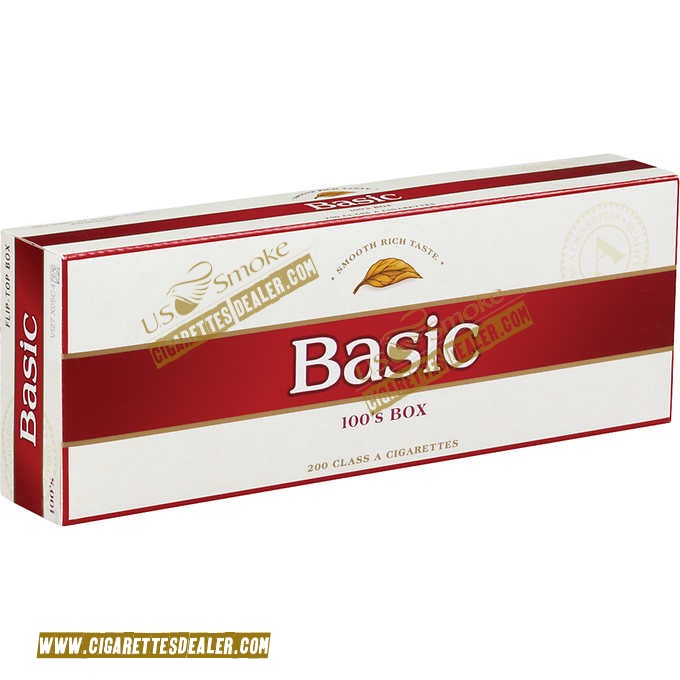 Basic 100's Box$26.00$86.00Save: 70% off12 Reviews
Basic 100's Box$26.00$86.00Save: 70% off12 Reviews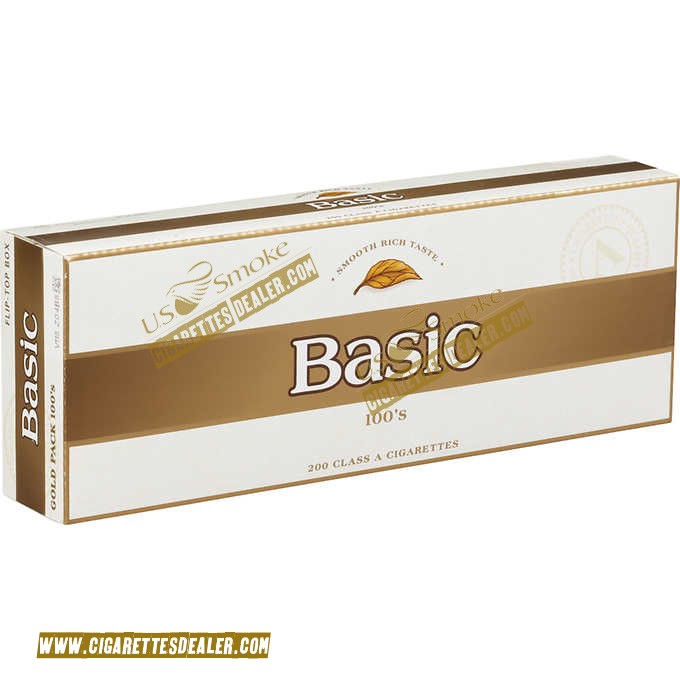 Basic 100's Gold Pack Box$26.00$86.00Save: 70% off69 Reviews
Basic 100's Gold Pack Box$26.00$86.00Save: 70% off69 Reviews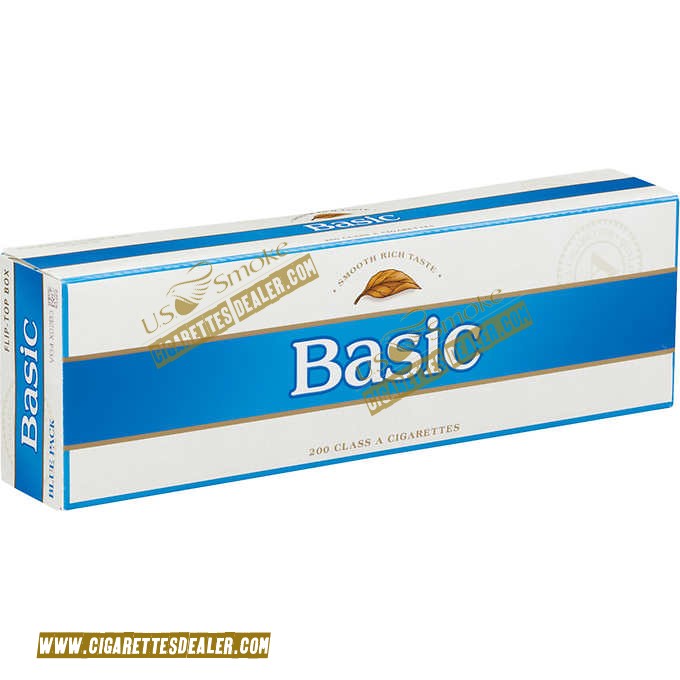 Basic Blue Pack Box$26.00$86.00Save: 70% off77 Reviews
Basic Blue Pack Box$26.00$86.00Save: 70% off77 Reviews
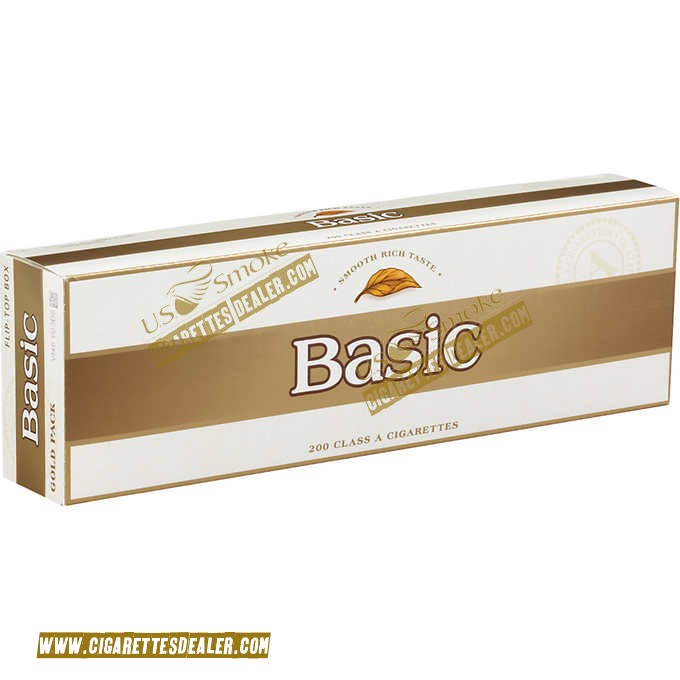 Basic Gold Pack Box$26.00$86.00Save: 70% off33 Reviews
Basic Gold Pack Box$26.00$86.00Save: 70% off33 Reviews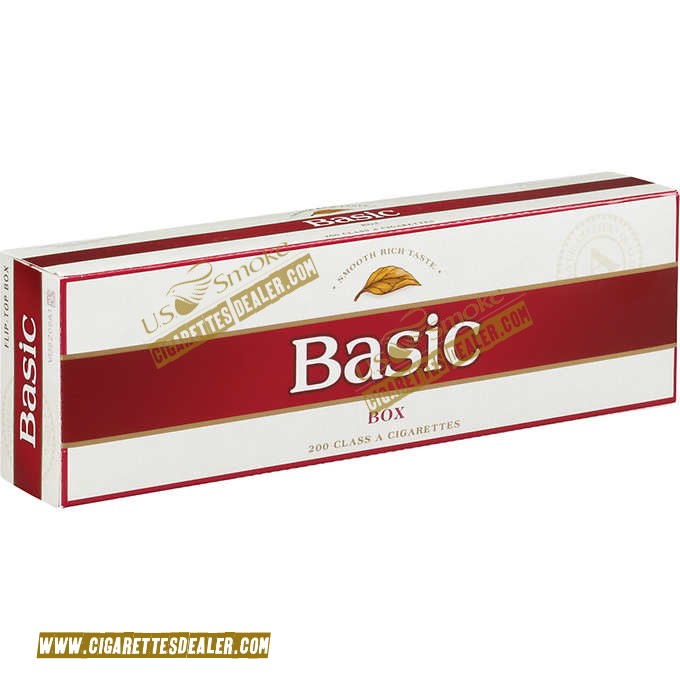 Basic King Box$26.00$86.00Save: 70% off77 Reviews
Basic King Box$26.00$86.00Save: 70% off77 Reviews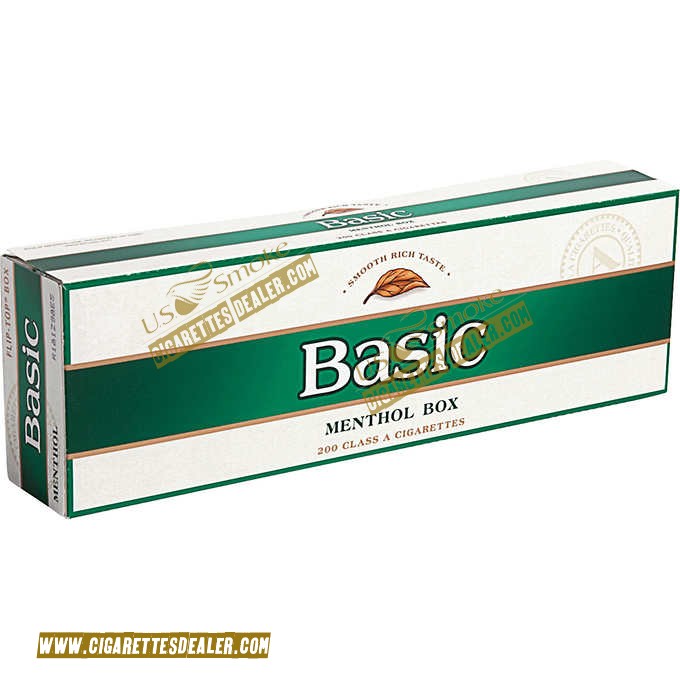 Basic King Menthol Box$26.00$86.00Save: 70% off59 Reviews
Basic King Menthol Box$26.00$86.00Save: 70% off59 Reviews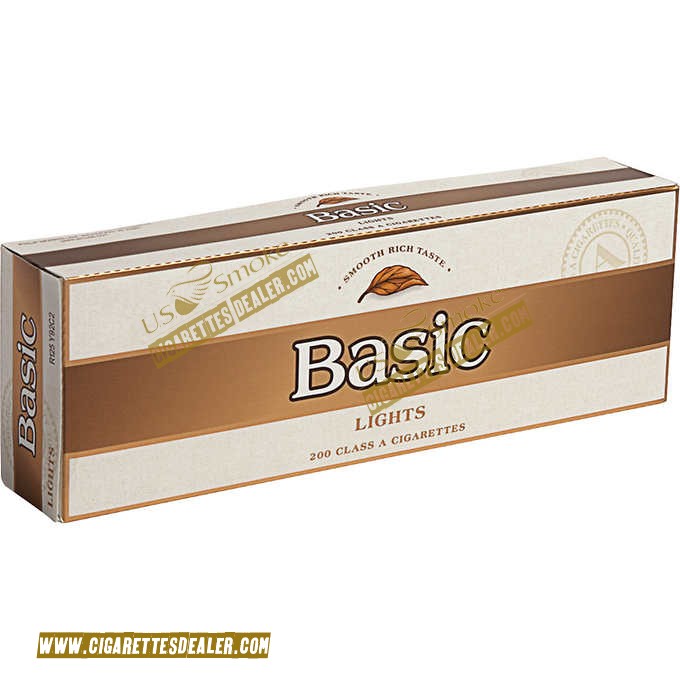 Basic Lights Gold Pack Soft Pack$26.00$86.00Save: 70% off61 Reviews
Basic Lights Gold Pack Soft Pack$26.00$86.00Save: 70% off61 Reviews
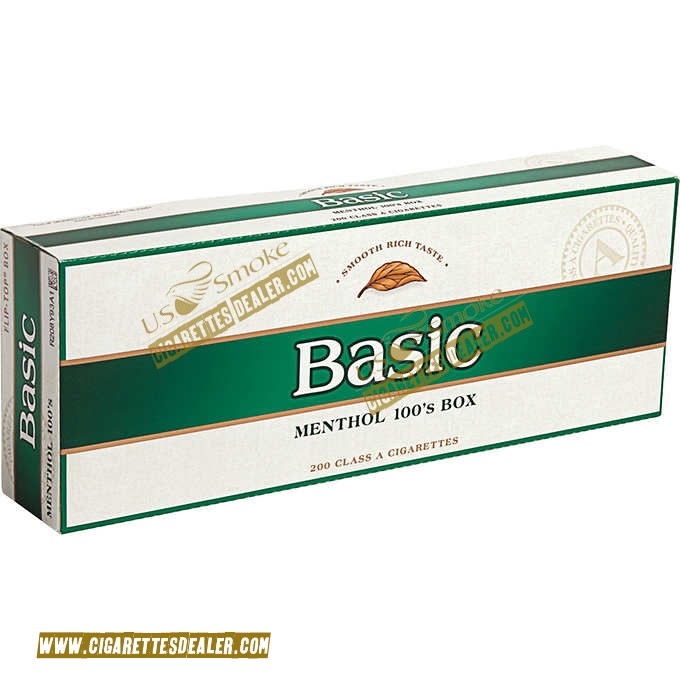 Basic Menthol 100's Box$26.00$86.00Save: 70% off92 Reviews
Basic Menthol 100's Box$26.00$86.00Save: 70% off92 Reviews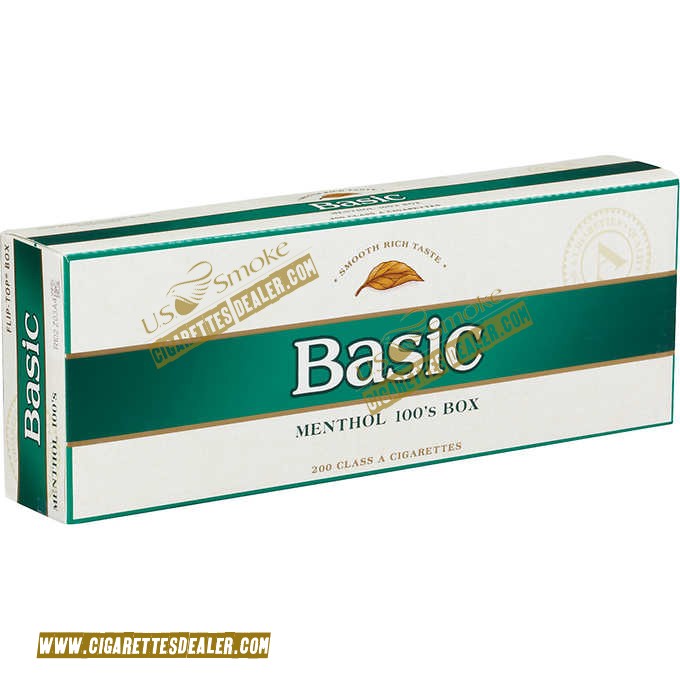 Basic Menthol 100's Gold Pack Box$26.00$86.00Save: 70% off98 Reviews
Basic Menthol 100's Gold Pack Box$26.00$86.00Save: 70% off98 Reviews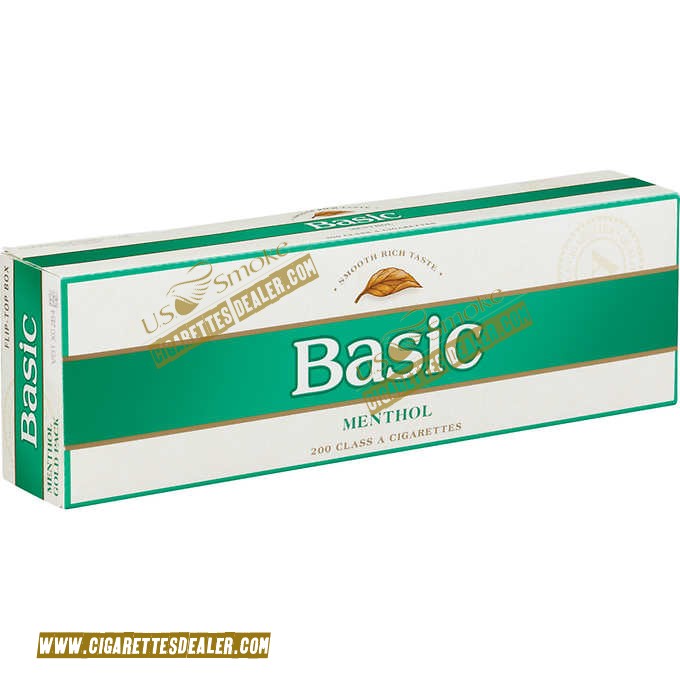 Basic Menthol Gold Pack Box$26.00$86.00Save: 70% off79 Reviews
Basic Menthol Gold Pack Box$26.00$86.00Save: 70% off79 Reviews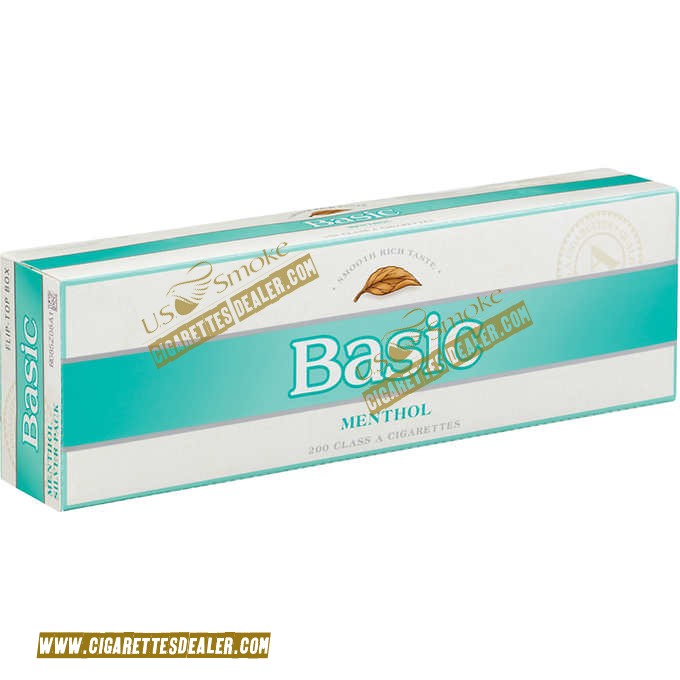 Basic Menthol Silver Pack Box$26.00$86.00Save: 70% off18 Reviews
Basic Menthol Silver Pack Box$26.00$86.00Save: 70% off18 Reviews
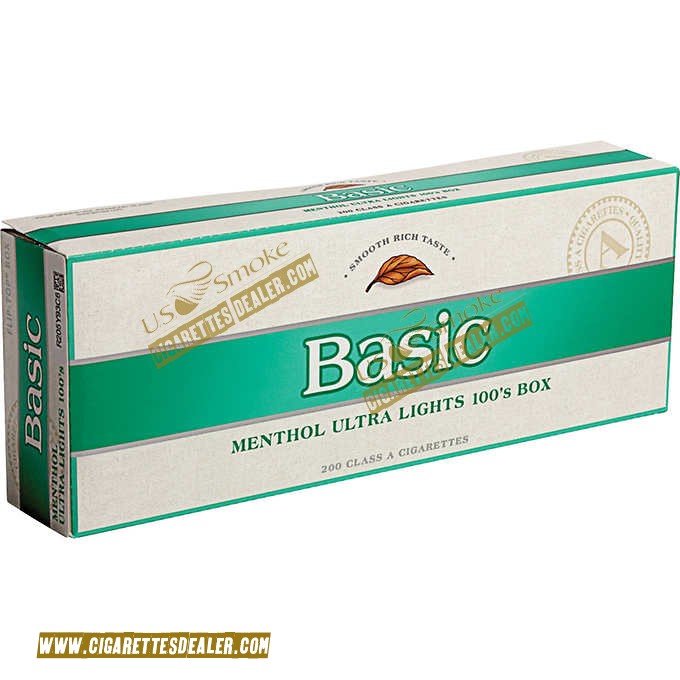 Basic Menthol Ultra Lights 100's Silver Pack Box$26.00$86.0094 Reviews
Basic Menthol Ultra Lights 100's Silver Pack Box$26.00$86.0094 Reviews
As Trump tackles vapes, African Americans feel stung by inaction on menthol cigarettes
LaTrisha Vetaw has watched generations of her family suffer after getting hooked on menthol cigarettes. Her father died of a heart attack at...

-
American Spirit Cigarettes Natural American Spirit (often referred to as American Spirit) is an American brand of cigarettes and other to...
-
305's Cigars 305's Cigars are made in Miami, FL by Dosal Tobacco, the company which also makes the 305's Cigarettes, Competid...
-
Basic Cigarettes Basic is an American brand of cigarettes, currently owned and manufactured by Philip Morris USA in the U.S. and by Phili...



